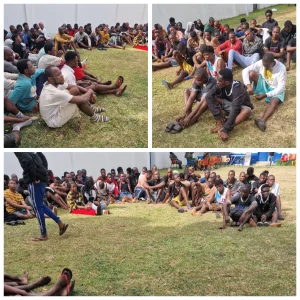
China is experiencing a surge in human metapneumovirus (HMPV) cases, a respiratory virus spreading during winter. Vulnerable groups, including infants and the elderly, face severe risks. With no vaccine available, treatment focuses on symptom management. Authorities are monitoring the outbreak, though it’s deemed less severe than COVID-19 by officials.
China is currently grappling with a significant uptick in cases of human metapneumovirus (HMPV), a respiratory virus that has drawn attention due to its impact on vulnerable populations, including infants, the elderly, and individuals with weakened immune systems.
HMPV is a single-stranded RNA virus first identified in the Netherlands in 2001. It spreads through respiratory droplets and contaminated surfaces, causing symptoms such as fever, cough, nasal congestion, and fatigue. The virus typically incubates for three to six days and can lead to severe complications like pneumonia.
The outbreak, concentrated in northern Chinese provinces, aligns with the winter season, a period known for increased respiratory infections. Chinese hospitals report a surge in cases, prompting health authorities to implement emergency protocols to manage the situation.
Despite the rise in infections, the World Health Organization (WHO) has not classified HMPV as a global health emergency. Chinese officials, including foreign ministry spokesperson Mao Ning, have emphasized that the virus appears less severe and widespread than COVID-19.
“Respiratory infections peak in winter,” Ning remarked, adding that current cases are "less severe than last year."
Unlike COVID-19, which claimed millions of lives globally, there is no vaccine for HMPV. Treatment focuses on alleviating symptoms. Health experts urge heightened awareness and preventive measures, particularly for at-risk groups, as monitoring systems are strengthened to contain the spread.
While not as alarming as previous pandemics, the situation highlights the ongoing challenges posed by emerging respiratory viruses.


![[VIDEO] Pastor Chris Okafor Kneels in Church, Seeks Forgiveness Over Doris Ogala Scandal](/data/attachments/226/226699-c9d00b3f5d864545ced4f9e15e8e2fbc.jpg?hash=MWaI4y9cI1)

